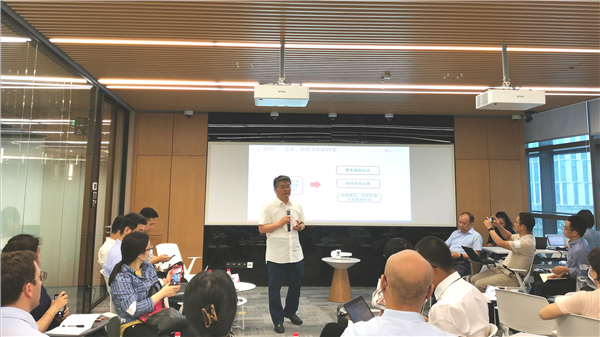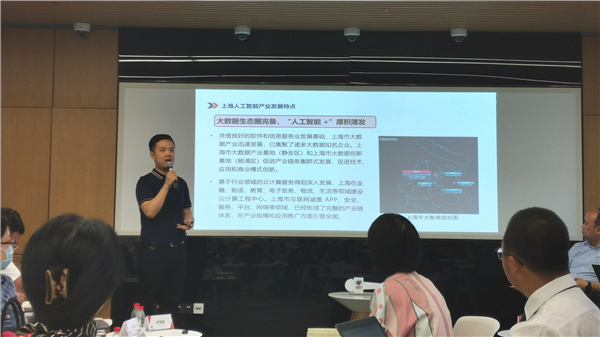The COVID-19 epidemic that broke out in central China’s Hubei province has increased the pressure of doctors in CT scanning. To facilitate the scanning efficiency of suspected cases, China’s largest AI unicorn SenseTime has upgraded its SenseCare lung solution—a smart AI-assisted diagnosis application for both common lung diseases and COVID-19. At the same time, SenseTime has been utilizing its “Smart AI Epidemic Prevention Solution” to improve the efficiency of fever screening and minimize the risk of cross-infection among citizens in subway stations, schools and community centers in Beijing, Shanghai and Shenzhen.
The above scenarios are just examples of AI’s application in fighting the epidemic. AI is one of the seven major areas of “new infrastructure” in China. At a seminar held on May 3 on “New Infrastructure, Online Economy and the Future Development of Shanghai City”, experts and scholars from Shanghai Jiao Tong University (SJTU) and the Shanghai Academy of Social Sciences (SASS) exchanged views and research results with the media.


Riding the trend of online new economy
Bucking the trend of a declining GDP performance in Q1, the online new economy in China has surged post the COVID-19 epidemic. The concept of “new economy” was first mentioned in the 1990s in the USA, said Prof. Chen Xian from the Antai College of Economics & Management, Shanghai Jiao Tong University. For economists, “new economy” refers to emerging industries like online education, e-commerce, and online healthcare.
According to Chen, three major factors led to the rise of the online new economy in China: high demand, the industrial supply of the digital economy, and the transformation driven by innovation. As he said, statistics from the China Academy of Information and Communications Technology (CAICT) show that the size of China’s digital economy reached 35 trillion yuan in 2019, accounting for 35.4% of the country’s GDP.
The online new economy is an abundant mine which nurtures new professions, said Wang Yi, research fellow at the Institute of Politics and Public Management, SASS. Take selling goods in live streams for example. The online new economy has provided people with new job opportunities, work forms and development areas. People with 6C capabilities (Computing, Caring, Catering, Consulting, Coaching, and Creative) are better at riding the trend of the online new economy and seizing opportunities in new professions.
Shanghai’s move in seeking new opportunities
What are the unique advantages of Shanghai in developing new infrastructure and the online new economy? According to Song Haitao, deputy dean of the Artificial Intelligence Institute of SJTU, AI development in Shanghai is featured in a variety of segmented industries.
From agriculture and manufacturing to energy and logistics, we can see leading enterprises, unicorns and representative enterprises. Besides, due to superior location advantages plus the business environment and plentiful capital market platforms, startups like Data Grand, YITU and Xiaoi Robot keep springing up.
Prof. Chen Xian from SJTU also analyzed the comprehensive strengths of Shanghai’s development of the online new economy.
This year, while trying its best to fight against the epidemic and encouraging work resumption of businesses, Shanghai has also been seizing the chance to turn crisis into opportunity. On April 8, the city issued a 3-year action plan to promote the online new economy through more inclusive supervision, more open scenarios, better services and more innovative industrial ecology. Excited about the plan, Hui Zhibin, director of the Internet Research Center of SASS, gave his suggestion: the online new economy should be developed in concert with new technologies, new infrastructure, new elements and new governance.
